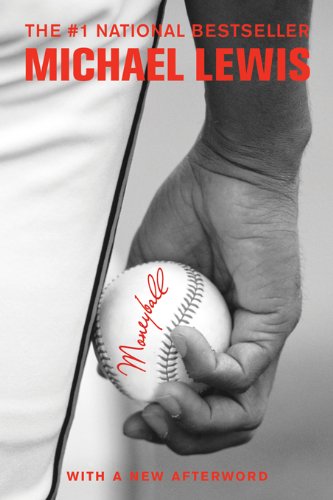
In Moneyball, Michael Lewis outlines how the Oakland A’s general manager needs to think differently to make a winning team with the tightest budget in Major League Baseball in 2012. The main focal point of Moneyball is Billy Bean, the General Manager of the Oakland A’s, who was initially drafted out of high school by the New York Mets in the first round of the 1980 draft. Once in the big leagues, the young Billy Beane cracked under pressure and was unable to live up to the lofty expectations on his back. Billy got traded a lot during his career and finally decided to hang up his cleats. Soon after retirement, Billy missed the game so much and took a job as a scout for the A’s and later worked his way up to being the general manager. Billy was successful in building young teams that could compete for championships but what he could never do for the small market Oakland A’s was pay large contracts to those younger talented players. He was forced to watch them leave and receive larger contracts on other teams, leaving the A’s without superstar players. Beane needed to develop a new method of managing a reduced budget and winning games so he set out to find a new way of creating a team based on value and statistical averages over a 162 game season. He worked with what he had and signed cheaper players that were overlooked by other teams, but could statistically, over the course the season, average out to equal what he thinks the team needed to win. Billy created a new term called Moneyball which placed value on batters getting on base either by hit or walk as those are the key areas that determined runs scored and wins. He didn’t need really expensive players that hit home runs and stole bases, he need guys to just get on base at a high rate. The concept was very successful and after the Oakland Athletics went 102-60 and won 20 games in a row, more teams started to notice. Even with the low budget and not much help, Billy re-worked the fundamental way teams go about building a team and made one that is not only entertaining, but made the playoffs at a fraction of the cost as other teams.
I would recommend Moneyball to people who like baseball, statistical analysis or the inner workings of sports in general. It goes into great detail of what it takes to build a good team and how to rethink winning at a time where money can’t solve your player issues. This also walks the reader through the struggle Billy, as a young and promising star, goes through being drafted out of high school and the amount of pressure and expectations put on him. Overall I definitely do recommend this book to anyone who is not only into sports but everyone who enjoys a well told story.
Moneyball is a really good read and has a real story behind it that played out over the course of a season. The only problem I had with the story is it goes way into the statistical analysis of Bill James and how he created stats that determine a players’ overall value. I enjoyed the stories and the behind the scenes of some games but I did get bored with some of the stat sections that I felt needed to be described in an easier and more brief way.
As good as this book is, and I do highly recommend it, I do think everyone who reads this book should also watch the movie. The movie Moneyball gives a better understanding of the concept of how the stats work with baseball without going into the tedious details and exploring the less than interesting backstory of Bill James the statistician. Even with the stats portion of the book, I still give it a strong 8 out of 10.
Check out Moneyball from NBPL!